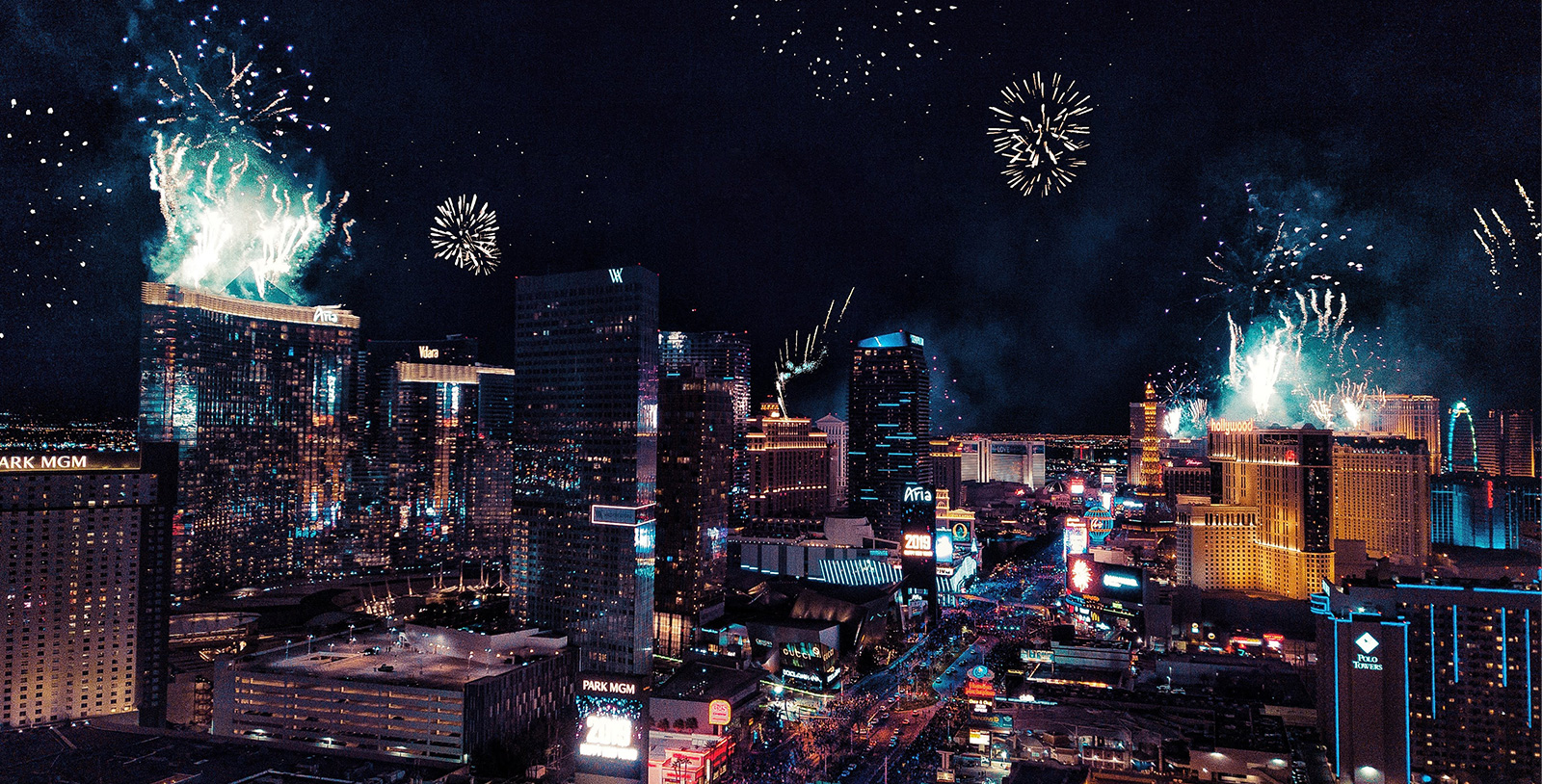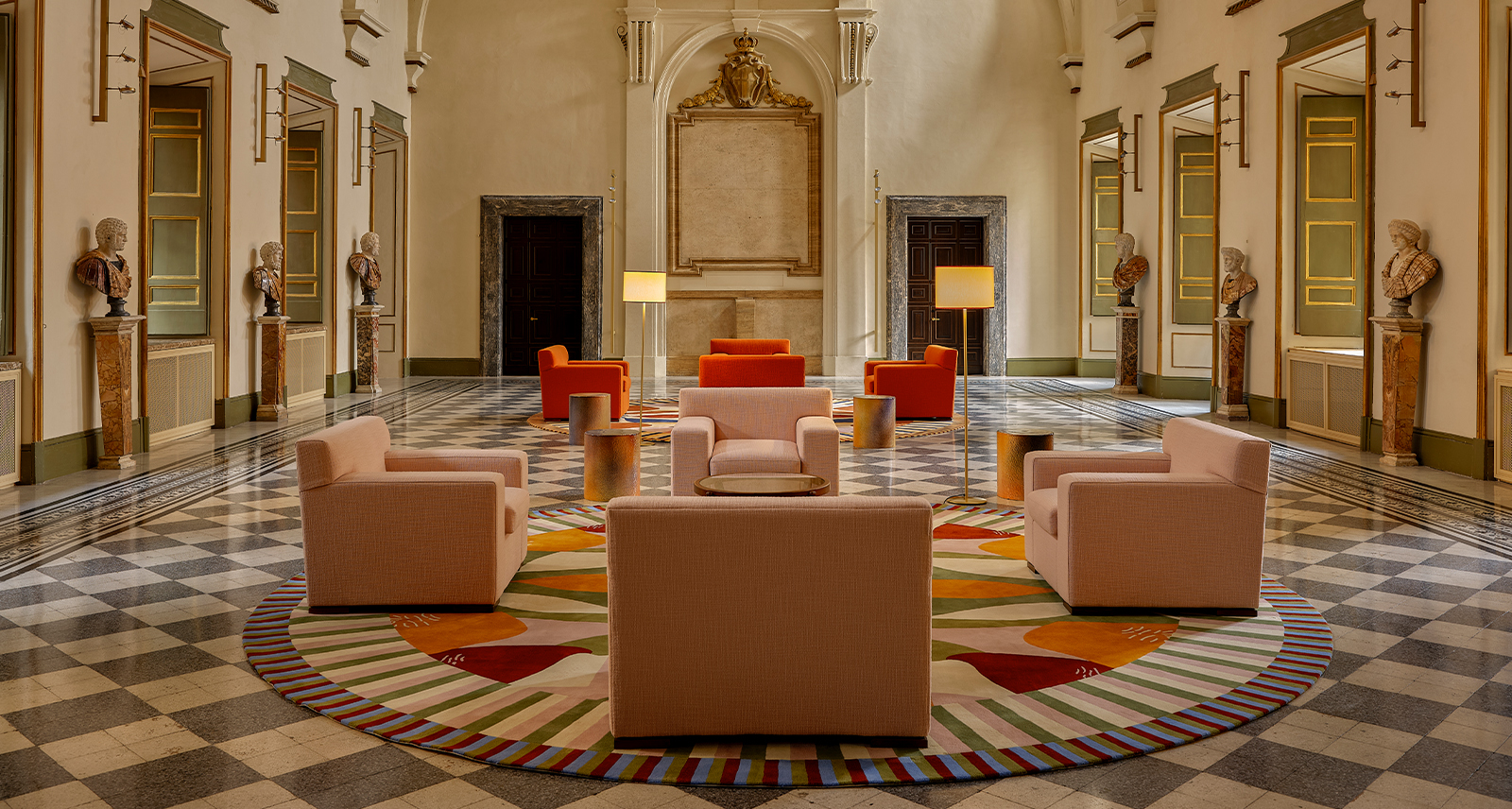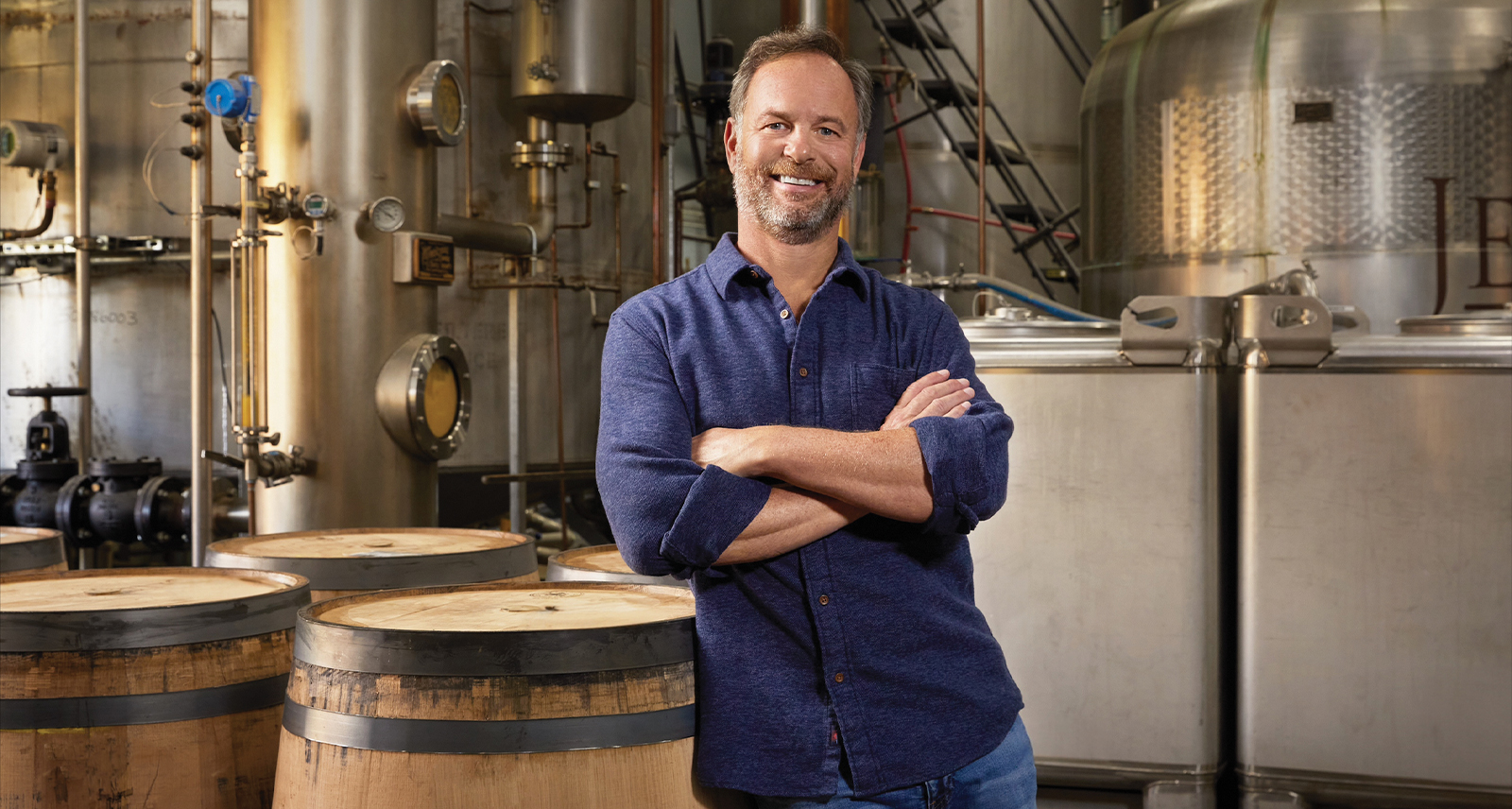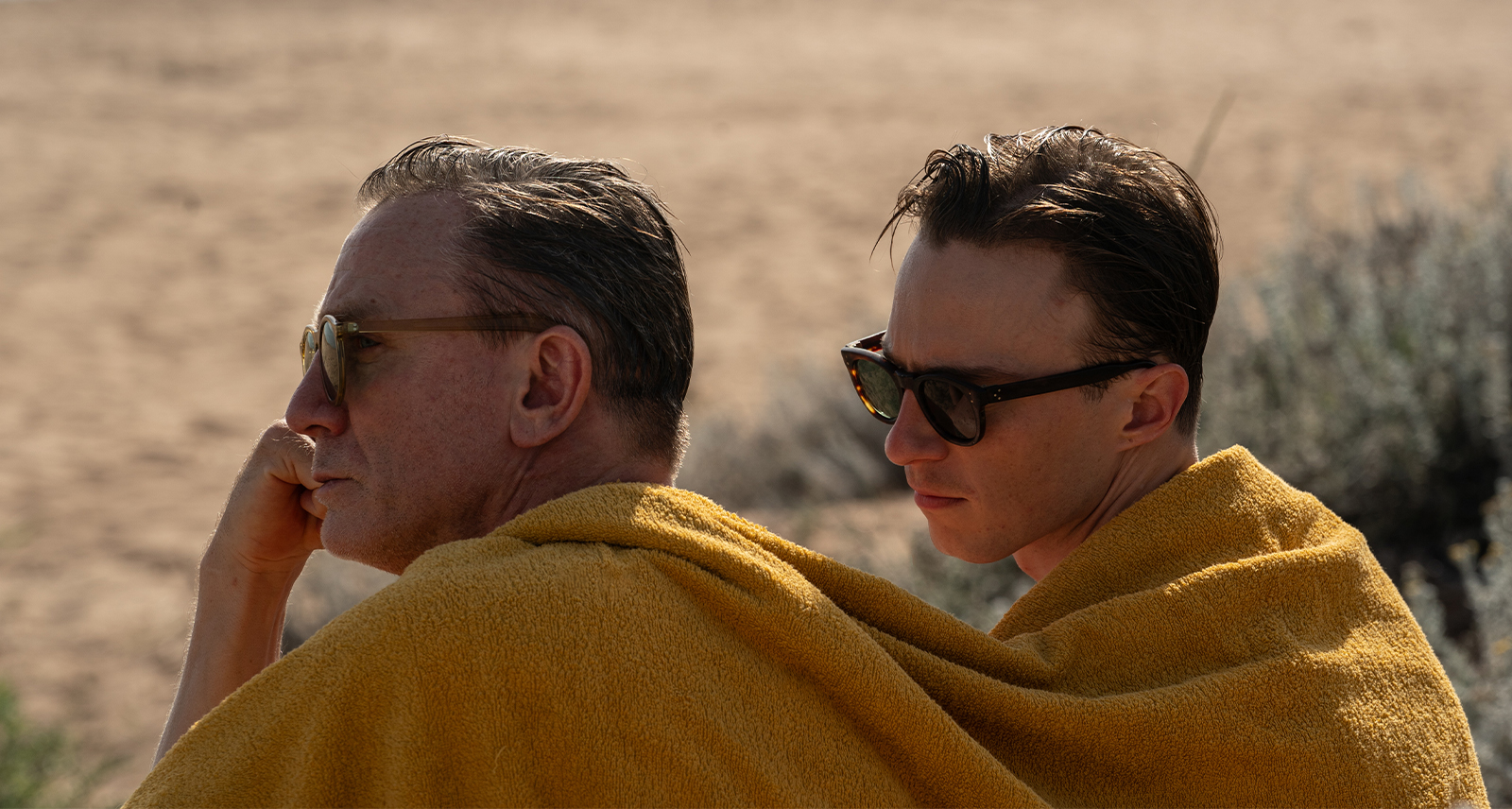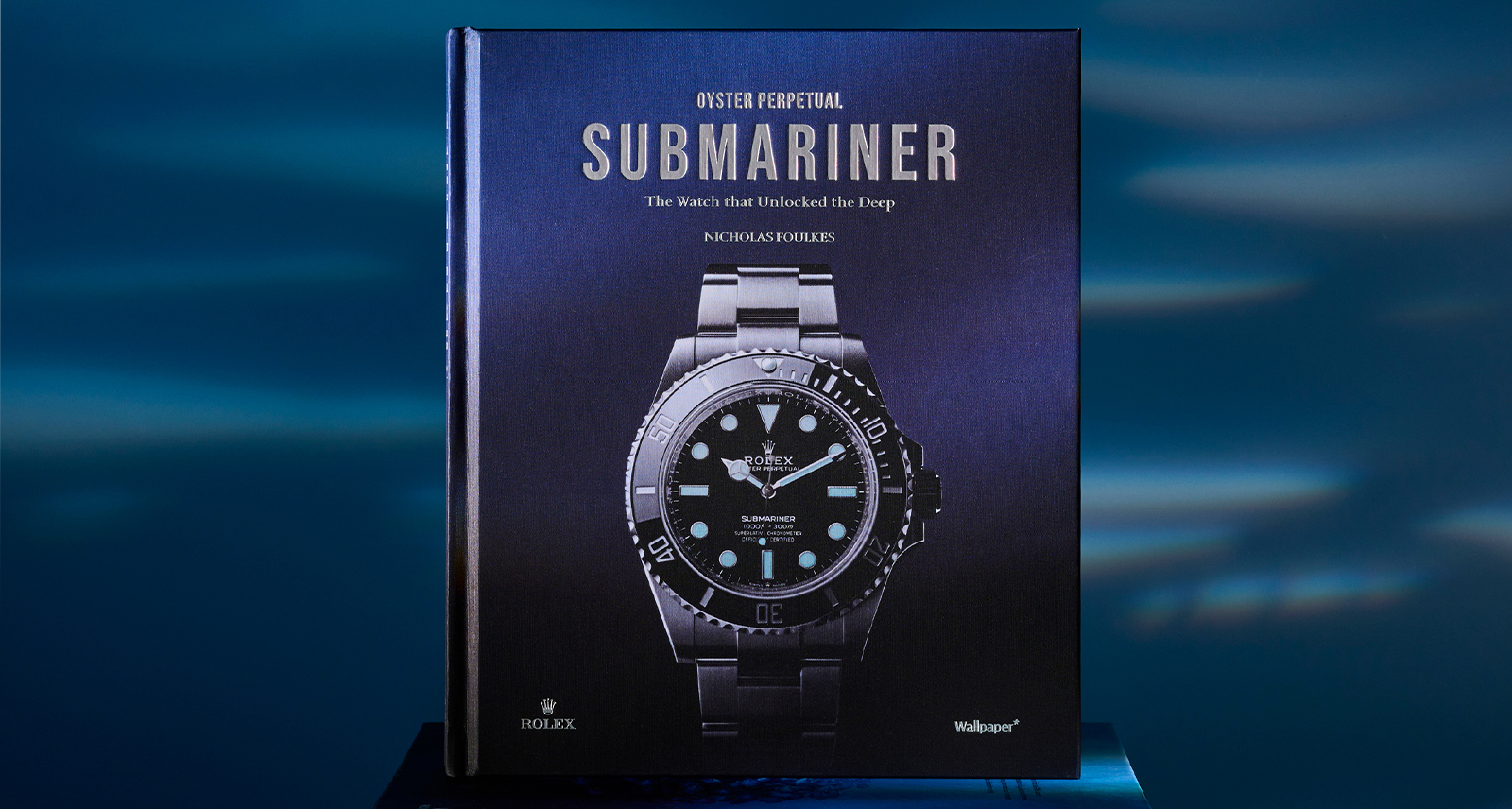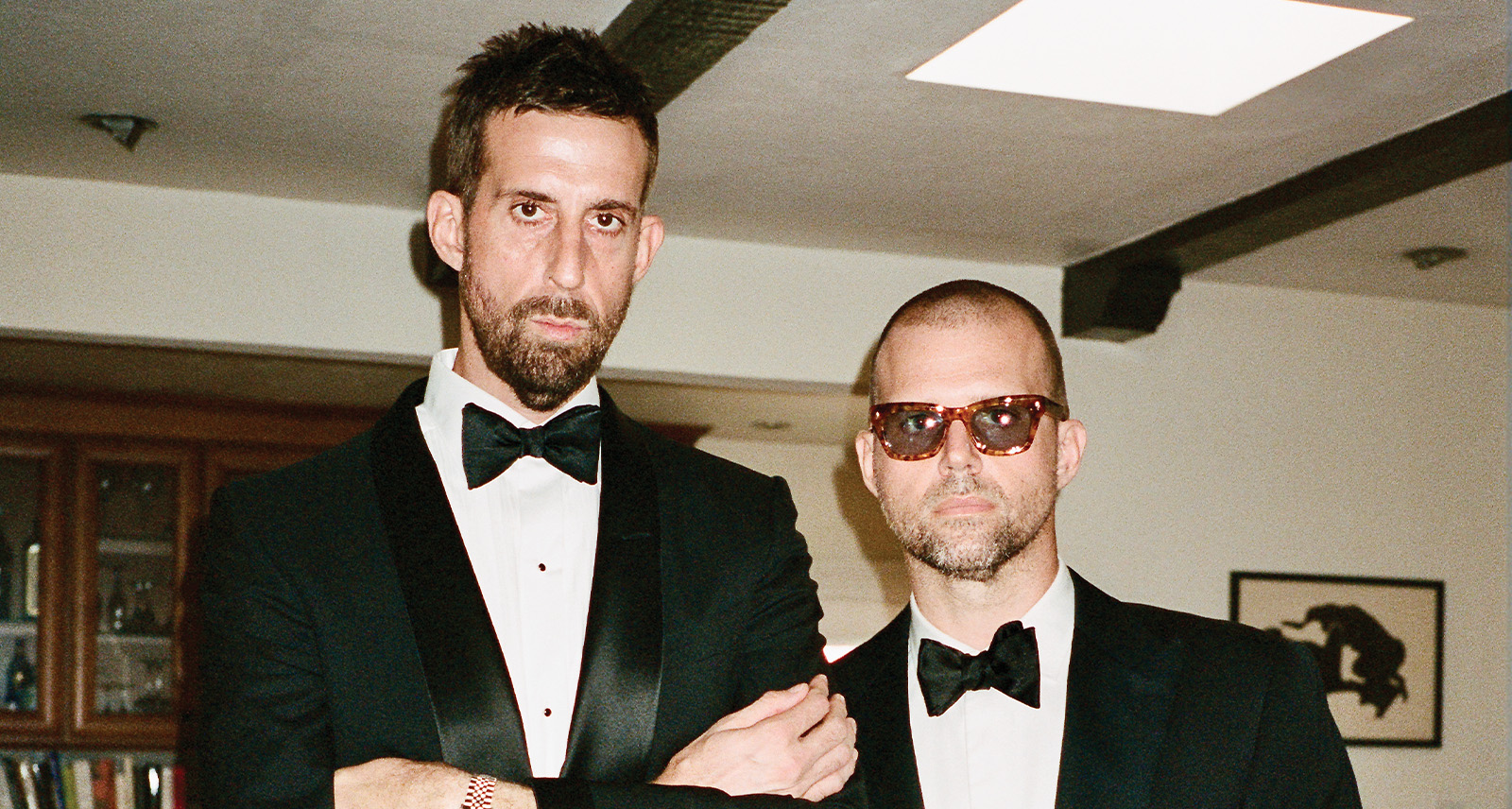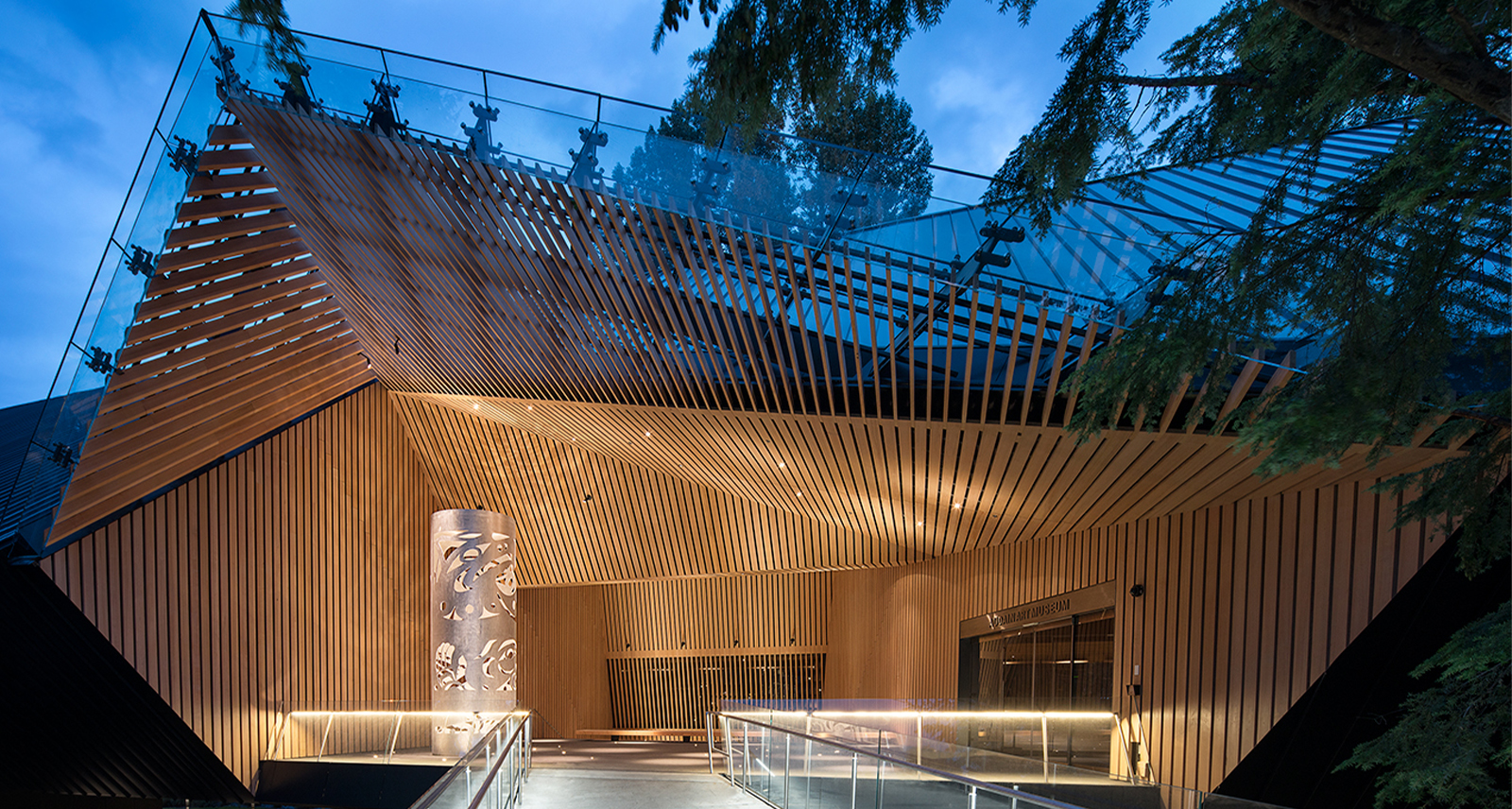How Vegas Is Remaking Hockey into a Totally New Form of Entertainment
It’s barely 6 p.m. on an average spring Wednesday, but inside the T-Mobile Arena, the drums of war beat loud for the Vegas Golden Knights. The crowd, sold out and hungry for a playoff spot, has arrived over an hour before puck drop just for this moment. The pop-rock group Imagine Dragons is here too. Standing beside the team’s neon drumline on an elevated platform high in the cheap seats, they wave their hands and, on cue, activate an air horn, ushering in waves of pyrotechnics; the lights dim and the show begins.
The ice is engulfed in projections and a video soon cues, setting the scene for the game ahead: the Knights, our heroes, are an attacking army waging war in the Mojave Desert. The Florida Panthers, their competition, never see them coming. Back on the ice, a Golden Knight arrives ready for a joust with the Panthers’ mascot, skewering the plush cat Medieval Times–style to huge applause. The puck is still 30 minutes from dropping, but the house is both literally and figuratively on fire. Thinking back on the experience months later, it’s hard to remember what actually happened in the game. But that level of entertainment, of storytelling, is hard to shake. I may be a long-suffering Leafs fan, but there’s an undeniable charm to a good show.
Now more than ever, sport is spectacle. And no one does spectacle like Vegas. The Golden Knights, an ice hockey team that plays in the desert and which, since its 2017 inception, has consistently broken attendance, performance, and old-school logic standards, are the embodiment of a new era in sport. If Moneyball proved that technology and statistics can outmanoeuvre traditional scouts, Vegas spectacle has done the same with the concept of purity. Blame millennial ADD, high ticket prices, or the development of entertainment technology so advanced it can turn frozen water into a vivid screen, but as the Knights’ unparalleled run on and off the ice has shown, the age of the beautiful game is dead.
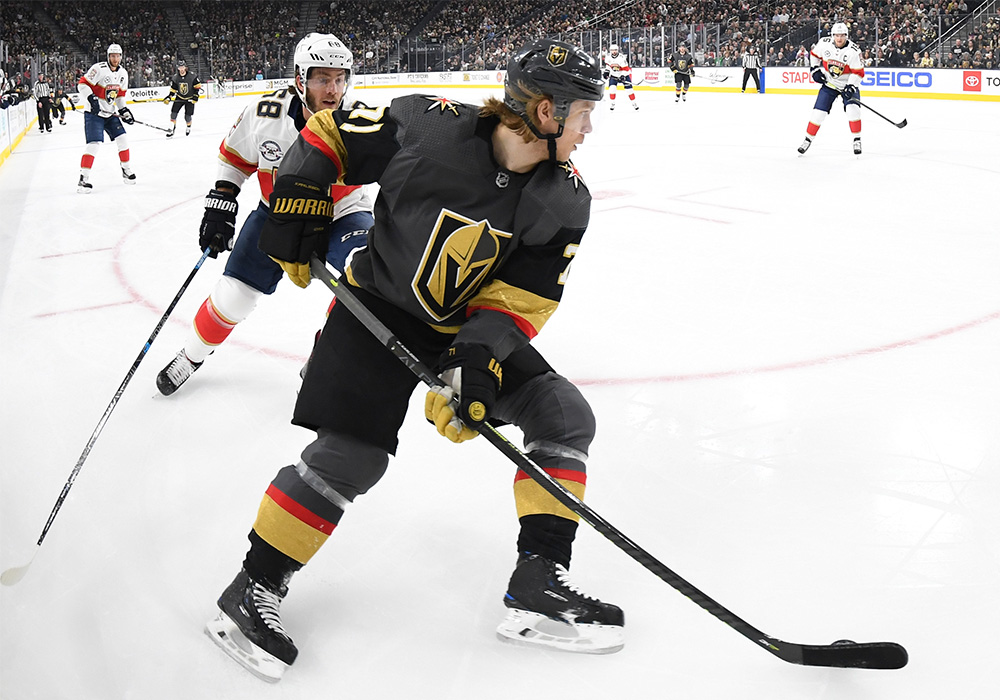
“If Vegas is home to the world’s best entertainment, then make the in-game presentation the most spectacular in the world.”
The first dozen or so times Golden Knights president and COO Kerry Bubolz flew into Las Vegas, he didn’t think much of the city beyond the glitzy strip of mega casinos. A lifetime sports executive who built his career — both in the minor and major leagues — on harnessing the power of community, Bubolz saw little reason to consider anything beyond what he now calls Vegas’s “unfortunate narrative, airport to the strip and back.”
That all changed around his 50th birthday, when Bubolz was given the reins of the NHL’s newest expansion team and told to do his best to make them a winner. Given the keys to a brand-new franchise, Bubolz began putting together a financial pro forma. The results were staggering. “You start to look at the market demographics: 2.3 million people, no other major sports teams, high disposable income…The question then became, were we going to compete with other hockey teams or were we going to sell a broader experience that was not just hockey-focused but also entertainment-focused?”
Bubolz arrived in Vegas following a 13-year tenure with the NBA’s Cleveland Cavaliers. By its very nature, professional basketball lends itself to the merger of sport and spectacle better than the other Big Four leagues: it’s fast, its players are showy, and the ability to seat owners and superstars courtside allows for large personalities to shine.
Bubolz worked for the Cavs during the LeBron James years, and witnessed first-hand what sports spectacle can do to rally a city. So when he came to Vegas, he reckoned he needed to find a way to bring that personality to an expansion team where the majority of the fans weren’t born locally and the faces of the franchise were hidden behind masks. He had little to work with: there were no legacy fans to count as a base, and the players were a collection of misfits left unguarded by their previous teams. On top of that, he had to compete with every other entertainment option available in the entertainment capital of the world.
Bubolz and his team decided to lean into their theoretical weaknesses — if Vegas is home to the world’s best entertainment, then make the in-game presentation the most spectacular. The team is made up of a bunch of rejects? Make their stories a rallying point. To do this, he took inspiration from an unlikely source: fake sport. The lifelong sports executive had, for many years, admired the effectiveness of the WWE to engage and engross fans by effectively couching the actual “sport” in entertainment, ensuring there was always a hero and a heel. Like the extraction of sugar from fruit, it retained the primal excitement of bloodsport while removing the danger and replacing it with fun. If he could implement the WWE’s strategies with the Knights, Bubolz felt, it would create an instant fanship bond, rather than one built on decades of generational team history.
In traditional markets, such a strategy could have fallen flat on its face. But in Vegas, it became a rallying cry. The team became the most successful expansion franchise in sport history, selling out every game to date and making the Stanley Cup finals in its inaugural season. “The NHL Players Association did a recent poll in which 42.5 per cent of players said Vegas had the best fans,” Bubolz recently boasted over the phone from his Vegas office. “We won by a large margin.”
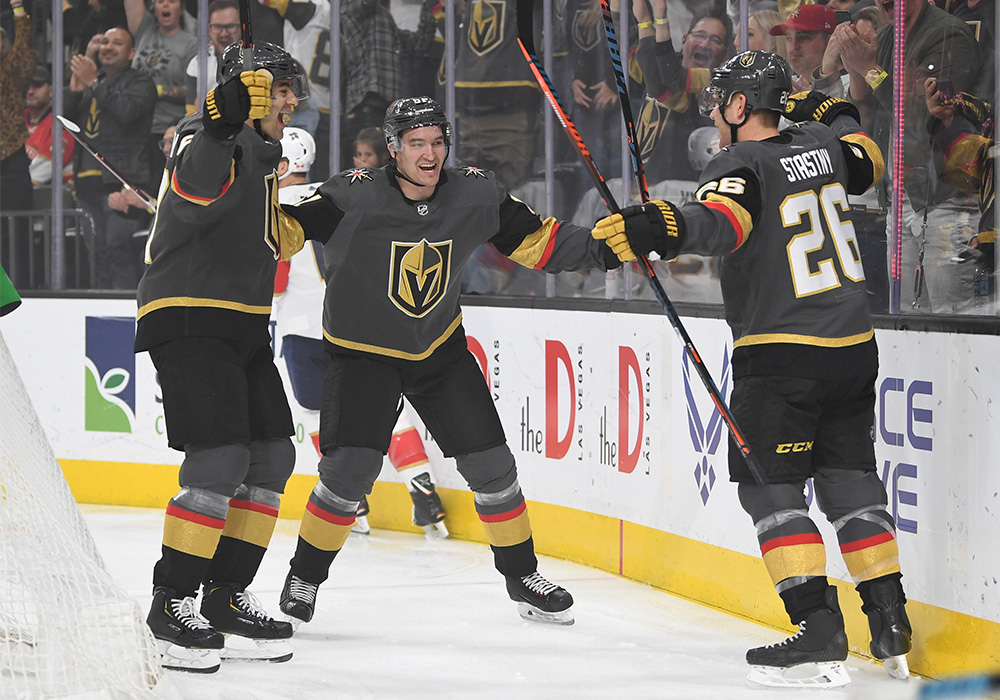
So why did Bubolz’s strategy work? For one thing, it was a long time coming. As any fan of the Raptors will tell you, marketing a story (for example, the hugely successful We The North campaign that posited Toronto’s othered status in the NBA as a rallying cry) and using celebrity (here’s looking at you, Drake) rocketed the team to success. Bubolz himself admits that much of the bluster he used in Vegas came out of studying what worked at his previous gig in Cleveland — the LeBron choreographed intros, the pyrotechnical panaches, the ability to rally around a relatively small community. And, in turn, the success of the Golden Knights has led to many teams calling his office for advice — including Vegas’s latest professional sports team, the NFL’s Las Vegas Raiders.
But perhaps more importantly, with a new generation of fans having more options for live sport and entertainment than ever before, it’s become clear that the concept of purity in sport has always been a kind of fallacy. From the moment fans were willing to pay to watch sports, the players became less combatants than performers, and those fans a commodity. In other words, professional sport, by any sense, is spectacle. And purity was, until now, a way to control the unattainable nature of legend — to excuse the faltering and exalt the exceptional. It was spin.
As the puritanical sports writer Philip Hersh put it in a massive 1999 treatise in the Chicago Tribune, “Over the centuries, battling gladiators have been swapped for prizefighters. The street football brawlers at Yale and Harvard, who played a brutal game until it was banned at both places in the 1860s, have become hockey goons. The Indians who massacred British soldiers after a lacrosse game in 1763 have been replaced by soccer hooligans. The spoils of victory now include celebration riots.”
One need only see the downfall of cycling or the flailing of soccer superstars to understand that “beauty” and “purity” in sport are marketing terms, gone effectively unchallenged for so long they’ve became canon. In a quote that’s aged as well as a dead cat, Tour de France champion Lance Armstrong argues in that same article: “I have never thought of myself as an entertainer. I prefer to think of sports as pure, and athletes as pure and that spectators may watch for entertainment but prefer to watch the sports for their purity.”
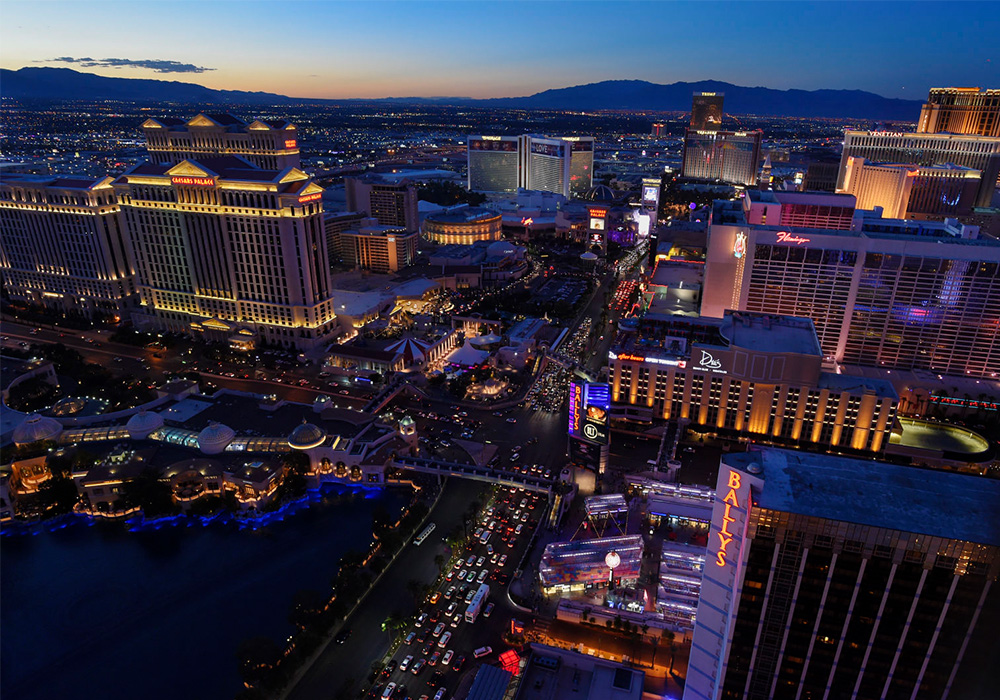
While some may have seen Bubolz’s approach as making the sport of hockey less “pure,” others see it as making the city of Vegas less sinful. Bubolz’s vision for his team aligned well with a larger vision for Vegas, in turn amplifying the stakes of — and the support for — his own marketing efforts.
“We’re already the entertainment capital of the world. Now, we’re looking to become the sports and entertainment capital,” confirms Lisa Motley, director of sports marketing and special events for the Las Vegas Convention and Visitors Authority. “A lot of that has to do with removing the stigma around gambling.”
This shift began in 2008, when the global economic downturn forced many Vegas casinos to pivot from gambling to event and entertainment experiences in order to lure a new generation of wealthy patrons to the desert, opening the door not only for big-name DJ residencies and million-dollar clubs, but also for sport and the big money that follows.
Coupled with a low cost of living and rapidly increasing population (80 per cent of Vegas residents are transplants), the conditions were ideal for a budding sports community. When EDM’s global pull started waning, the sports market was there to fill its place as paramount to Vegas’s marketing strategy and economic viability.
Which is why it’s no surprise that the strategy that led to the introduction of the Knights has quickly been applied to another recently launched Vegas sports team. On a recent afternoon, Lights FC owner and GM Brett Lashbrook stood on the pitch at Cashman Field and laid out the highlights of his team’s inaugural season in the United Football League. “We have llamas on the field,” he began, before listing a string of stunts which included a DJ booth in the stands, an Elvis caricature mascot equipped with motorcycle, rewarding players with casino chips, and dropping $5,000 in cash from a helicopter. Wrapping up with a laugh, Lashbrook added, “After the first game, we learned the llamas have no reflexes and enjoy relieving themselves at will.” The animals now hang around outside the stadium before matches.
While such stunts may come off as minor-league bluster, Lashbrook is no joke. A former lawyer, his sports bona fides include ushering Orlando City SC from the UFL to the MLS. He understands what needs to happen in order to succeed, and he’s quick to note that on-field performance is a smaller part of the puzzle than one would expect. Instead, for the Lights’ first season, Lashbrook focused on building the team’s reputation with the Vegas community (specifically the rising Latinx population) while again using Vegas-style showmanship, marketing, and acumen to land sponsorship deals with Zappos (hence the llamas) and, in a league first, a marijuana dispensary.
“We see Lights FC as entertainment which happens to feature soccer,” Lashbrook explained with a sly smile. “We’re open to anything, as long as it entertains the fans.” That includes, in a move that comes full circle, gambling. Even if sports might be helping Vegas to diversify its reputation, it’s still coursing through the blood of this city. Lights FC is the first professional sports team to partner with bookmaker William Hill to bring in-game betting to the fans, including announcers providing line-bet related commentary. The move is now widely replicated across the sports world — including in a recent deal with the NHL. Vegas might occasionally dabble in the absurd (see: those llamas), but many of its experiments in the sports arena are proving to be strokes of genius with much broader repercussions.
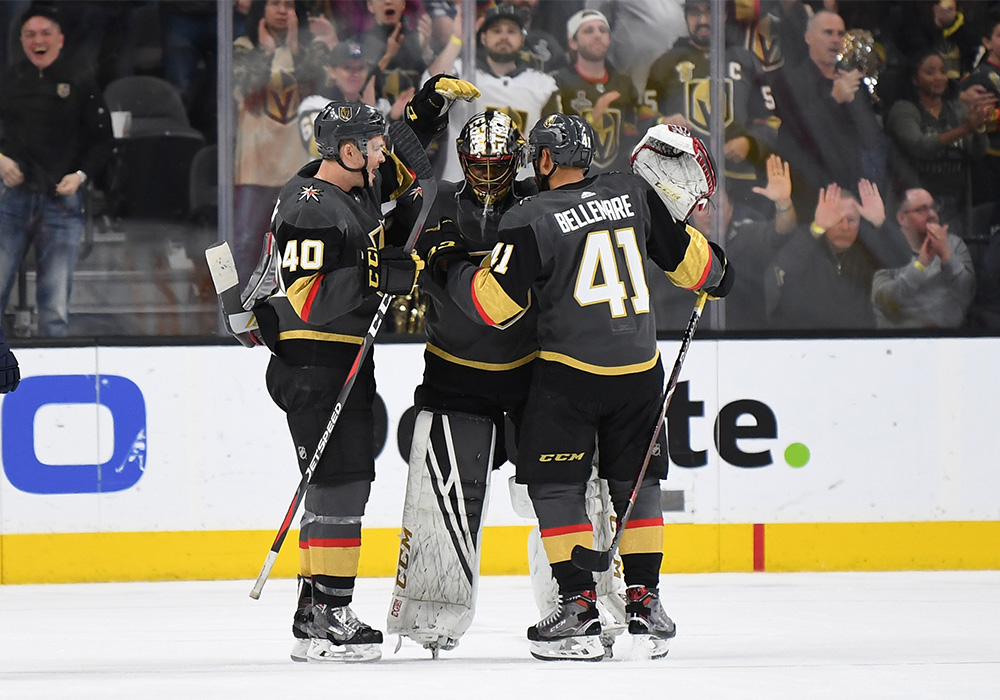
“Teams need to consider the importance of thinking outside of the box and taking more gambles,” wrote Calgary Herald columnist Eric Francis last June, after being wowed by the Knights’ Stanley Cup intro. “It’s not just about the good ol’ hockey game anymore — it hasn’t been for quite some time. It’s about providing an atmosphere and a vibe so infectious people are willing to spend ungodly amounts of money to come back regularly. That takes innovation, that takes creativity, that takes money, and that takes guts.”
Essentially, that took Kerry Bubolz. Thanks to his vision, the team affectionately known as the Golden Misfits has become more than just a phenomenon — it’s become the beginning of a revolution in hockey. After over 50 years in the professional sports desert, sports has come to Vegas — but really, Vegas has come to sports. “If it’s done right, you can be as over-the-top in any market,” Bulbolz told me. “Every team in every league can do it.”
